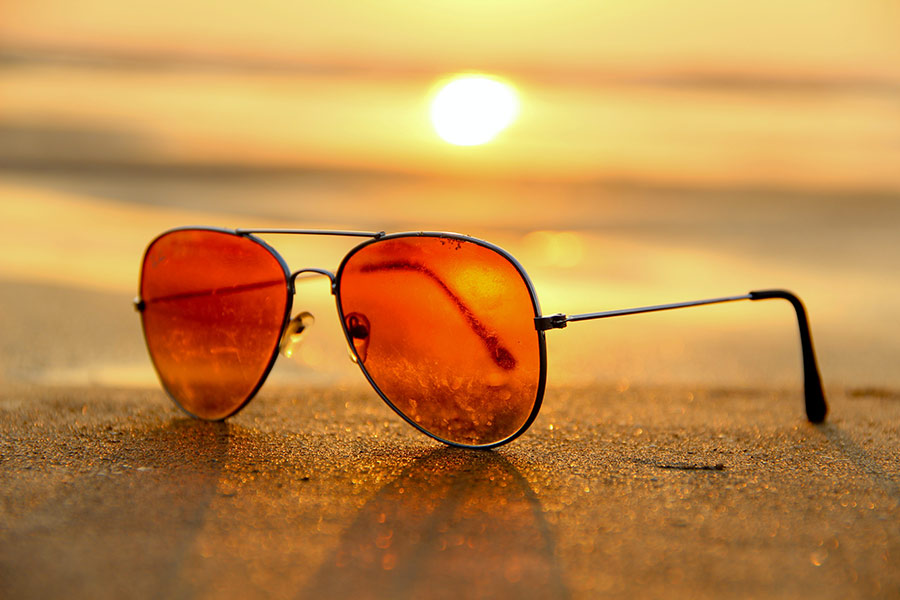
20 Dangerous Things That Could Damage Vision
Have you ever wondered what daily activities could impair your vision? The American Academy of Ophthalmology (AAO) gathered a list of the 20 most harmful activities for our eyes. These are presented below.
Smoking
There are many eye diseases related to tobacco usage. The list includes cataracts, age-related macular degeneration (AMD), or glaucoma. It is for this reason that quitting smoking can protect your eyes among other things.
Not getting vaccinated
In addition to the herpes zoster vaccine for adults, the AAO recommends that children receive the measles vaccine. Both of these diseases are eye-damaging.
Making home remedies
Quick research online produces a lot of home remedies. They can actually make your vision decline further. Therefore, you should see an ophthalmologist before trying any home remedies.
Not wearing sunglasses
Sunlight can damage the cornea and lens of your eyes, damaging your vision. Protecting your eyes from this light is best done with glasses that block 100% of the UV rays.
Tattooing your eye
As well as injuries from the needle or ink, tattooing the eye can cause infection, retinal detachment, and blindness. You should ask your ophthalmologist for a prescription for color contacts.
Confusing eye drops with liquid glue or other substances
Individuals may not know exactly what medications to use, and sometimes mistake Superglue for eye medication. You could get serious wounds and abrasions to your cornea if you do this. That’s why it’s recommended to keep your meds in a separate place.
Not eating properly
Blindness may result from a poor diet. Alternatively, being malnourished can negatively affect the optic nerve. It’s best to eat lots of fruits, veggies, and nutrient-rich foods to prevent this damage.
Staring at the sun
Experiencing an eclipse without the proper eyewear can also be damaging. Sunglasses, on the other hand, block UVA rays but aren’t good for looking directly at the sun.
Playing sports without adequate protection
It is possible to sustain various injuries while playing sports without wearing proper eye protection. Examples include retinal detachment, eye bleeding, and eye rupture.
Not knowing your health status
Blood pressure or other health conditions don’t seem to have anything to do with your eyes, but that couldn’t be further from the truth. Diabetes and other systemic diseases, left untreated, can affect the eyes, causing blindness.
Working without eye protection
You should wear eye protection if you work in construction, chemistry, or manual labor. You might get an eye injury otherwise.
Delaying treatment of an eye injury
Blows or injuries to the eye may seem minor at first. But they can seriously damage your vision if not treated right.
Swimming with contact lenses
It is important not to swim with contact lenses in, as this may result in a bacteria infection. We recommend wearing goggles while in the pool.
Not taking medication as instructed
There are some serious conditions that require specific treatment, like glaucoma. Sometimes patients forget to wear them or don’t put them on correctly, which affects the effectiveness of the treatment. Don’t forget to read the instructions and ask your doctor any questions you have.
Not cleaning contact lenses
Not cleaning your contact lenses is another common cause of infection. It’s important to wash your hands, store your lenses properly, and use disinfectants before inserting the lenses.
Wearing contact lenses too long
Most people wear contact lenses every day, from the start of the day until they go to bed. If you wear them too long, it can damage your vision.
Buying contact lenses without a prescription
There are a lot of colored lenses used for costumes that weren’t prescribed by a doctor. You could damage your vision or even harm your eye health if you wear these lenses leading to blindness. Consult an ophthalmologist before wearing contact lenses.
Going to sleep with makeup on
It’s easy for mascara and eye makeup to get trapped under the lenses and cause infections. Use cotton and water to remove your makeup, as well as special makeup soap.
Using non-approved make-up products
Make-up that’s not approved can cause infections and adverse reactions. Because of this, it’s best to apply makeup with products that have been approved by the administration and even prescribed by an ophthalmologist.
Foregoing ophthalmological check-ups
Early on, many eye diseases are asymptomatic. This is why regular eye exams are so important. They can be detected early and treated quickly by an ophthalmologist.




